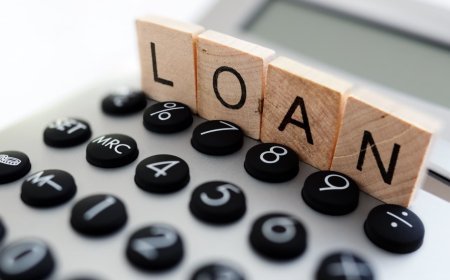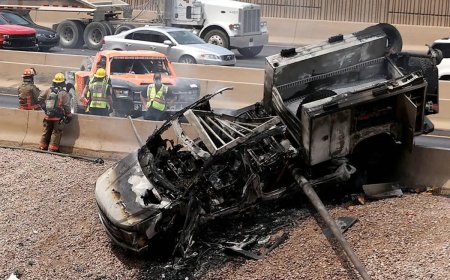Legal Requirements for Starting a Money Changer Business

The global demand for currency exchange has opened up significant opportunities for entrepreneurs to start their own money changer businesses. Whether you’re catering to tourists, expatriates, or businesses involved in international trade, the money-changing industry is one that is always in demand. However, before you jump into the exciting world of currency exchange, it's essential to understand the legal requirements and regulatory framework that govern the operations of a money changer business.
In this comprehensive guide, we will break down the key legal requirements you need to consider when starting a money changer business, including licenses, compliance regulations, and best practices to ensure you stay on the right side of the law.
Understanding the Role of a Money Changer
Before diving into the legal requirements, it’s crucial to understand the role of a money changer. A money changer is a business or individual involved in the exchange of foreign currency for local currency, and vice versa. Money changers facilitate cross-border transactions for individuals and businesses who require foreign currency for travel, international trade, or investment purposes.
Given the nature of the business, money changers are often involved in high-value transactions, which makes them subject to stringent financial regulations, particularly regarding anti-money laundering (AML) and counter-financing of terrorism (CFT) laws.
Obtaining a Money Changer License
One of the first and most critical steps in starting a money changer business is obtaining the necessary licenses. These licenses are required by most governments to ensure that your business complies with local laws and is regulated for financial safety and security.
Key Licenses You May Need:
-
Money Changer License
In many countries, you’ll need a money changer license to operate legally. This license is typically issued by the central bank or a national financial authority. The requirements for obtaining this license may vary from country to country, but the general conditions include a background check, proof of financial stability, and the establishment of an appropriate business infrastructure. -
Foreign Exchange License (Forex License)
Depending on your location and the scope of your business, you might also need a Forex License to handle larger-scale or international currency exchange. This license is usually regulated by the central monetary authority of the country, which ensures that your exchange rates, margins, and operations comply with national economic policies. -
Business Operating License
Besides financial licenses, you will also need a standard business operating license issued by your local business registration authority. This ensures that your business complies with general commercial laws, including tax regulations, business operations, and employee rights.
How to Apply for a Money Changer License:
The process of applying for a money changer license typically involves the following steps:
- Submit an application with the relevant authorities.
- Submit financial statements and proof of the ability to conduct business in a stable and compliant manner.
- Provide a business plan outlining your money-changing operations, customer base, and financial projections.
- Pass a background check to ensure the business owners and key personnel have no criminal history or involvement in illicit activities.
Compliance with Anti-Money Laundering (AML) and Know Your Customer (KYC) Regulations
Money changers are a key player in the global fight against money laundering and the financing of terrorism. Governments and international regulatory bodies like the Financial Action Task Force (FATF) impose strict anti-money laundering (AML) and Know Your Customer (KYC) requirements to mitigate the risks associated with illicit financial activities.
What Is AML Compliance for Money Changers?
AML compliance refers to a set of regulations that require money changers to monitor financial transactions, report suspicious activity, and maintain records of transactions over a certain threshold. These regulations ensure that the funds exchanged in the business are not part of any illegal activities.
KYC Procedures:
As part of AML compliance, money changers must implement robust KYC procedures to verify the identity of customers before engaging in currency exchange transactions. This includes:
- Collecting personal identification documents such as passports, national IDs, or driver’s licenses.
- Verifying the source of funds for large transactions to ensure the legitimacy of the customer’s money.
- Monitoring suspicious transactions and reporting them to the relevant authorities, such as the Financial Intelligence Unit (FIU).
The Importance of KYC and AML:
By adhering to AML and KYC requirements, money changers ensure that they are not inadvertently facilitating illegal activities, such as money laundering or the financing of terrorism. Non-compliance with these regulations can result in heavy fines, loss of license, and even criminal charges.
Location and Premises Compliance
The physical location of your money changer business is an essential factor in ensuring compliance with local regulations. Many countries have specific rules regarding where currency exchange businesses can operate. For instance, some may require money changers to be located in high-traffic areas such as airports, tourist destinations, or financial districts.
Key Considerations for Location Compliance:
-
Zoning Regulations
Ensure that your business location complies with zoning laws that determine where money changers can operate. In some places, operating a money changer business in residential or non-commercial zones may be prohibited. -
Security Measures
Given the nature of the business, you’ll need to implement security measures to protect both your customers and the business. This may include security cameras, alarm systems, and safes for storing large sums of currency. -
Adequate Business Facilities
You may be required to demonstrate that your business premises are suitable for conducting currency exchange transactions. This includes having adequate space for customer transactions and ensuring a professional and safe environment.
Taxation and Financial Reporting
Starting a money changer business also involves ensuring compliance with tax regulations. Since currency exchange businesses often deal with large sums of money, governments are keen to ensure that businesses are paying their fair share of taxes.
Tax Considerations:
-
Value-Added Tax (VAT)
Depending on the jurisdiction, you may be required to pay VAT on the services provided by your business. For instance, you may need to pay tax on the service fee you charge for exchanging currencies. -
Income Tax
Money changers are subject to income tax on their earnings. You’ll need to maintain proper financial records, file your returns, and pay taxes on the profits from your currency exchange operations. -
Tax Compliance Reporting
Be prepared to submit regular financial statements and reports to the tax authorities. This could include quarterly or annual filings that detail your revenue, expenses, and net profits.
Final Steps for Compliance and Operational Readiness
Once you’ve fulfilled the above requirements, the final steps for compliance and operational readiness include:
- Staff Training: Ensure your employees are well-versed in AML, KYC, and customer service protocols.
- Establish Internal Policies: Create internal policies and procedures for daily operations, including transaction monitoring, customer verification, and reporting obligations.
- Software and Tools: Implement transaction monitoring and reporting tools that help you comply with financial regulations and make your operations efficient.
Conclusion
Starting a money changer business can be a lucrative venture, but it comes with a host of legal and regulatory responsibilities. By ensuring you meet the necessary licensing requirements, AML and KYC regulations, and complying with tax and zoning laws, you can set yourself up for success while avoiding legal pitfalls.
As with any business, it’s essential to stay informed about evolving regulations and make compliance a priority. By doing so, you’ll not only protect your business but also build a strong reputation in the competitive money-changing industry.
FAQs
1. What is the minimum capital required to start a money changer business?
The minimum capital required depends on your country’s regulations and the scope of your business. Generally, regulators may require a certain amount of working capital to ensure the business can handle large transactions.
2. How long does it take to obtain a money changer license?
The time it takes to obtain a money changer license can vary by jurisdiction. It typically ranges from a few weeks to several months, depending on the thoroughness of your application and background checks.
3. Can I run a money changer business online?
Yes, many jurisdictions allow online money changer businesses, but they must still comply with the same regulatory requirements, including AML and KYC. You’ll need to partner with authorized financial institutions to handle transactions.
What's Your Reaction?



























































